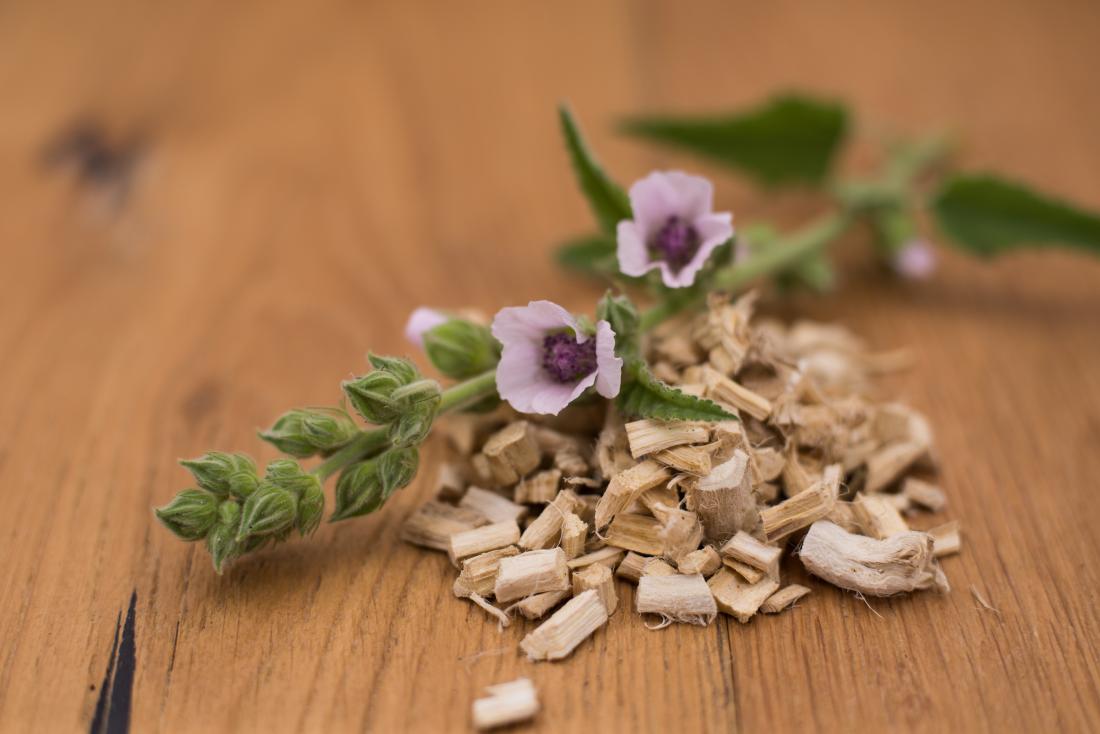You may not realize it, but your nervous system is working around the clock to ensure that your body is functioning properly. Your nervous system controls your senses (sight, hearing, taste, smells, and touch), voluntary and involuntary movement, and even your ability to process thoughts and memories. Simply put, without your nervous system, you’d have no way to interact with the world around you.
This, of course, makes it critically important to protect your nervous system and ensure your nerve health. While maintaining a healthy diet with regular exercise is one of the most effective ways to promote your overall health, many people also incorporate nerve control supplements into their daily diet. Many of the supplements utilize a combination of all-natural ingredients that can boost your nervous system health.
Of these natural ingredients, marshmallow root and passionflower are two of the most beneficial. But what exactly do these ingredients do? Here, we’re taking a closer look at the importance of your nervous system health and how both marshmallow root and passionflower can protect your nervous system and improve your overall health.
IMPORTANCE OF NERVOUS SYSTEM HEALTH
The nervous system is truly an impressive part of your body. The nervous system is a highly complex and specialized network of cells that impacts almost every aspect of our health and well-being. This network is divided into two parts, the central nervous system, comprising the brain and spinal cord, and the peripheral nervous system, which runs throughout the rest of the body and controls movement.
The nervous system is responsible for a wide array of body functions. Here are some of the most critical functions the nervous system controls:
· Brain development
· Sensory perceptions (hearing, smell, taste, touch, vision)
· Thoughts and emotions
· Muscle movement
· Body temperature
· Blood flow and blood pressure
· Responses to stress
· Learning and memory
· Reproductive health
· Hunger and thirst
MARSHMALLOW ROOT BENEFITS
More than just a tasty campfire treat, marshmallow has a range of impressive health benefits. Used as a medicinal herb for thousands of years by those in Europe and north Africa, every part of the marshmallow plant is edible, including the flowers and roots. Marshmallow root, in particular, is heralded for its health benefits, which range from treating the common cold to relieving pain. Here are some of the top health benefits of the marshmallow root:
1. Common cold.
While there is no cure for the common cold, marshmallow root can reduce symptoms and improve your healing time. When taken orally, this herb can reduce coughing and bring relief to a sore throat.
2. Digestion.
For those with digestion problems, marshmallow root may help. Marshmallow root extract can help soothe constipation, diarrhea, and colic issues. Over time this herb has even shown to reduce the risk of developing stomach ulcers. The mucilage in this root layers the digestive tract, reducing irritation.
3. Pain relief.
Consumed as either a capsule or liquid, marshmallow root can serve as an all-natural pain reliever. Salicylic acid, found in marshmallow root, can treat headaches and various muscle pains.
4. Bacterial infections.
The mucilage found in marshmallow root kills bacteria, which can help the body respond to a host of issues. This herb reduces swelling, burning, and irritation, and even helps the body remove bacteria by increasing urination.
5. Nerve health.
As previously mentioned, the mucilage within the marshmallow root herb has several benefits, including promoting nerve health. Mucilage coats and protects nerve endings and can provide relief to irritated or inflamed nerves.
Generally speaking, marshmallow root is safe for consumption; however, for some individuals, there are specific side effects. You should avoid marshmallow root if you are pregnant or if you have diabetes. Some of the possible side effects include:
· Dizziness
· Upset stomach
PASSIONFLOWER BENEFITS
Also known as passion vine, water lemon, apricot vine, or wild passionflower, this plant has a long history of medicinal use. Passionflower can be found growing in Central and South America and some parts of the United States. While more scientific research on this plant is needed, it is commonly used to help reduce anxiety, stress, and insomnia. Here are some of the common health benefits associated with taking passionflower:
1. Anxiety.
While additional research is still needed, some initial studies have shown that passionflower can reduce an individual’s anxiety and promote a calming sensation. Some studies suggest that this herb makes an effective replacement for certain anxiety-fighting prescription drugs.
2. Opiate withdrawal.
For those experiencing opiate withdrawals, passionflower may help provide relief. Passionflower, especially when paired with clonidine (a drug originally designed to treat high blood pressure), has reduced anxiety and withdrawal symptoms for some people in opioid detoxification programs.
3. Nerve health.
Passionflower can also improve your nervous system health. As early as the nineteenth century, passionflower has been used to treat restlessness, nervousness, and anxiety.
However, it should also be noted that, while passionflower is considered safe to consume, you may experience minor side effects. These side effects may include:
· Drowsiness
· Dizziness
· Nausea
· Rapid heartbeat
· Loss of coordination
· Vasculitis
CONCLUSION – HOW DO MARSHMALLOW ROOT AND PASSIONFLOWER BENEFIT YOUR HEALTH?
Your nervous system plays a crucial role in controlling your muscle function, sensory experiences, memory and critical thinking, and even your blood flow and blood pressure. With so many important responsibilities, it’s no wonder why so many people make protecting their nervous system a core part of their health routines.
Many foods are beneficial for your nervous system, including fish, eggs, leafy greens, avocados, almonds, and even dark chocolate. However, you can further protect and boost your nervous system health by incorporating nerve control supplements, such as Nerve Control 911, into your regular diet.
Of course, you should always consult your doctor before making any major changes to your dietary routine, but considering everything that your nervous system does for you, this is definitely a conversation worth having.
